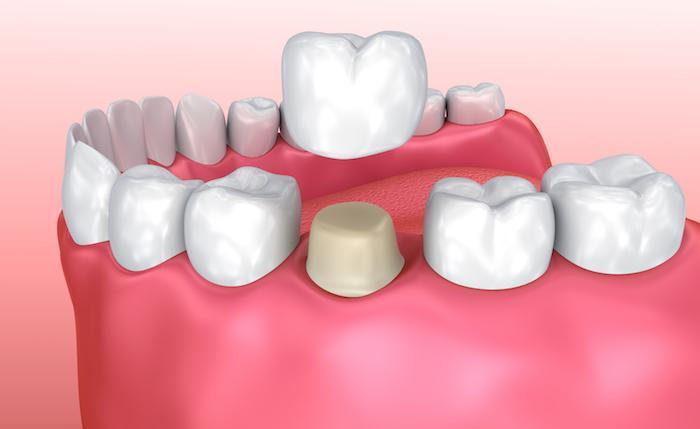Root canals are a beneficial procedure to save severely damaged or infected teeth. Once the infection is treated, the integrity and structure of the tooth are often compromised, making it more vulnerable to fractures and further damage.
To safeguard and restore these treated teeth, dental crowns are frequently recommended. Dental crowns play a key role in protecting teeth, restoring function, and enhancing their appearance after root canal treatments.
Why are Dental Crowns Beneficial?
After a root canal, teeth often require added reinforcement. During the procedure, affected tooth structures, including the pulp, are removed, leaving the remaining shell potentially weaker.
A dental crown serves as a protective cap that encases the vulnerable tooth, preserving its structure and shielding it from everyday forces such as chewing and biting.
By covering the entire tooth, crowns reduce the chances of fractures while preventing future damage or decay.
What are the Benefits?
Dental crowns offer several advantages for teeth treated with root canals, including:
- Protection: They fortify weakened teeth by acting as a barrier, reducing the risk of further damage or decay.
- Restoration: They restore the tooth’s strength, allowing it to handle regular biting and chewing functions without compromising durability.
- Aesthetics: They improve the appearance of teeth, covering discoloration or imperfections left from prior damage.
- Durability: When properly maintained, they provide a reliable and long-lasting solution for restored teeth, often lasting 10–15 years or more.
- Functionality: They enable treated teeth to regain full function, allowing for comfortable speaking and eating habits.
What are the Different Types of Crowns?
Dental crowns are available in various materials, each catering to different needs and preferences. Below is an overview of the most common options:
- Porcelain Crowns: These offer a natural tooth-like appearance, making them an excellent choice for visible teeth.
- Ceramic Crowns: Known for their aesthetic appeal and durability, ceramic crowns are suitable for patients who prioritize an organic, metal-free solution.
- Metal Crowns: Gold or silver provide unparalleled strength and durability, often favored for less visible teeth at the back of the mouth.
- Porcelain-Fused-to-Metal Crowns: Combining strength and appearance, these crowns feature a metal core for durability and a porcelain exterior for a natural look.
Selecting the right crown material will depend on factors such as the tooth’s location, the level of required durability, and the patient’s aesthetic preferences. A dental professional will guide you through the best options for your specific needs.
What Is the Dental Crown Procedure?
The dentist removes decay and shapes the tooth to prepare it for the crown. They take impressions to design a custom crown. A temporary crown protects the tooth while the final one is made. Once ready, the dentist cements the crown and adjusts it for comfort. Mild sensitivity may occur, but it typically subsides within a few days. With proper care, crowns are durable and long-lasting.
Summary and Next Steps
Dental crowns are a trusted method for protecting teeth that have undergone root canal treatment, restoring their strength, functionality, and appearance. Available in multiple materials, crowns provide versatile solutions tailored to individual needs.
For those who have recently received a root canal or suspect they may need one, discussing follow-up protection with a professional is a step toward maintaining long-term oral health. For expert guidance and personalized solutions, consult your dental professional today to explore the best options for your treated teeth.
Related Articles
What To Know About Microblading Aftercare
How an Emergency Dentist Can Treat Sudden Tooth Pain





